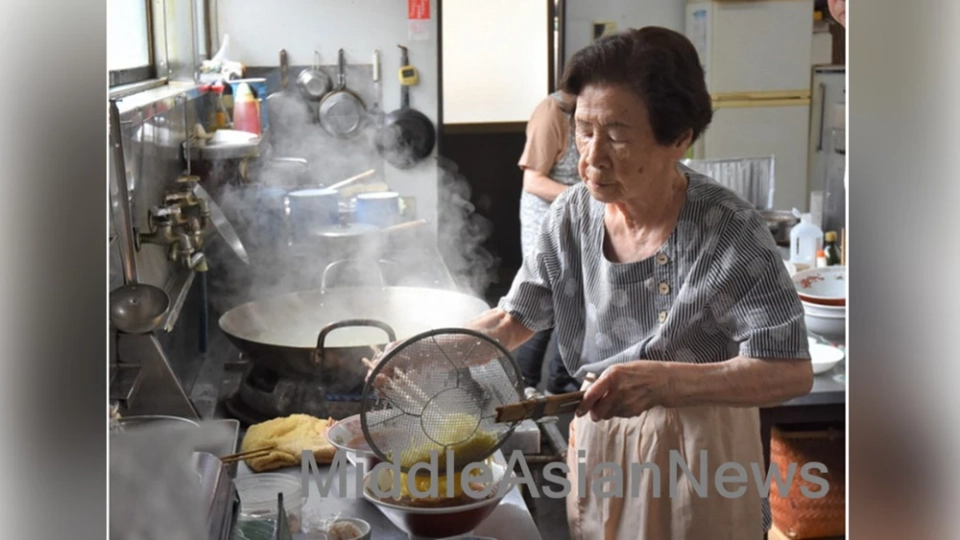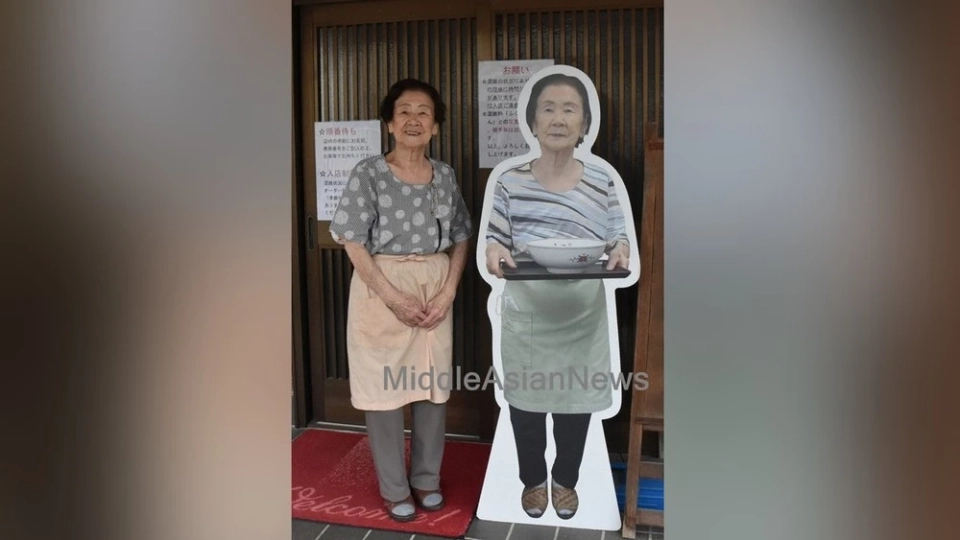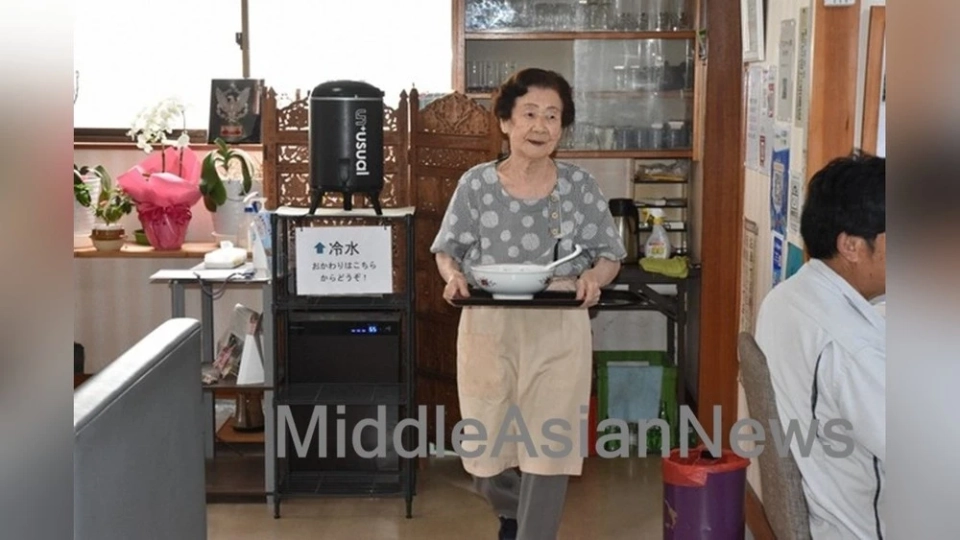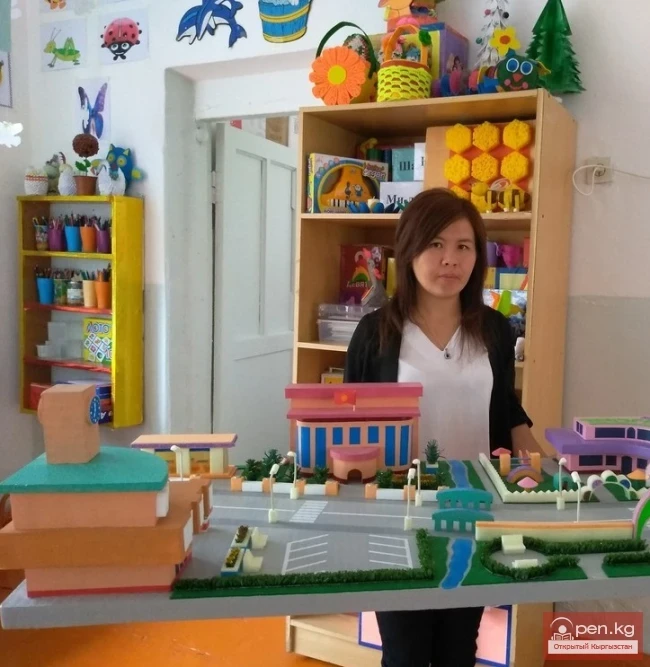A ramen restaurant worker in Japan, celebrating her centenary, attracts customers from all over the world
In a small ramen shop located in Fujioka, Gunma Prefecture, the 102-year-old "cover girl" continues to draw visitors from around the globe.
Fuku Amagawa, born in Japan during the Taisho era (1912-1926), still works at the Ginkatei restaurant, where she is assisted by her eldest daughter and second son. Her presence has become a symbol of hope for many, despite her age.
The establishment is situated along a picturesque road, surrounded by low mountains and not far from the former Onishi town hall. In 2006, the village merged with Fujioka city, and the population here has been gradually declining.
Nevertheless, the restaurant is popular, attracting many foreign tourists. Lines form even before it opens at 11:30, and the five tables for 20 seats fill up quickly.
Recently, during a journalist's visit, Fuku greeted him with a smile. Despite her small stature, she stands straight and moves quickly. She speaks energetically and readily answers questions without asking for them to be repeated. She assures that her eyesight is good and she looks significantly younger than her 102 years.
Fuku works at the restaurant for just one hour starting at noon. This year, she had to take three days off due to dizziness, but overall she works six days a week when the establishment is open.
"Every day I have the desire to come here. When the time comes, it’s like something clicks, and I think, 'It’s time for me to go,'" shares the centenarian. "I feel that I must help and want to interact with everyone."
Fuku is responsible for preparing ramen. With skilled movements, she measures the noodles and places them in a large pot. Then she prepares the broth, drains the water from the noodles, adds "char siu" pork and green onions, and then serves the dishes to customers.
"I have the motivation to continue. I don’t have the stamina, so I can only work for an hour, but if I had the chance, I would work more," she says.
Until recently, she could prepare three portions of fried rice in a heavy wok as if it were a normal task. "I thought I would stop when I turned 100, but as long as I train my muscles, they are fine," she notes.
During breaks between cooking, she is constantly on the move, handling payments and washing dishes, as well as doing light exercises like squats and calf raises. "Sitting still is a waste of time. I just do it naturally," she says.
From cinema to ramen restaurant
Fuku was born in 1923 in Mikuri village (modern-day Fujioka Prefecture) and was the eldest of four children. After graduating from a girls' school, she planned to undergo training for marriage, but all the men went off to war, and there were no young men left, as she recalls. She worked for about ten years in the office of a local bus company.
She was passionate about cinema and sometimes traveled to Tokyo to watch films. In 1949, she entered into an arranged marriage with Takashi, who was three years older than her, and whose family owned the only cinema in the area.
In the 1950s, shortly after their marriage, the film industry began to thrive. "I was happy to see movies for free, but I had no time because of work," she laughs.
In 1964, during the Tokyo Olympics, which contributed to the spread of color television, she decided to enter the restaurant business. The last film they showed was "Tokyo Olympics" by Kon Ichikawa.
Fuku's husband was a talented cook and a lover of gourmet food. She interned at a restaurant in Takasaki, Gunma Prefecture. "I thought that if I could make ramen and fried rice, that would be enough," she says.
In the spring of 1965, the cinema was converted into "Ginkatei." People who used to come for screenings now came to eat ramen and drink. The establishment also provided food delivery services to the local town hall.
In 2003, after the death of her husband Takashi, Fuku considered closing the restaurant. However, supported by her eldest daughter Kumiko Mushi, now 75, and her second son Shunji, who is now 66 and manages the restaurant, she decided to continue its operation.
Fuku claims that in her sixty years of work, she has never been seriously ill and continues to spend time in the restaurant.
"So many events have happened, and I didn’t even notice how 60 years passed. We built our restaurant and continue its operation, and I believe that is happiness," she shares.
Unexpected popularity on social media
When Fuku turned 100, her story unexpectedly attracted the attention of the media and social networks like YouTube, and she became well-known. Customers began to come from Mongolia, Taiwan, Germany, and other countries, and a life-sized statue of her was installed in front of the restaurant.
Shortly thereafter, something even more surprising happened. Fuku, a big fan of singer and actor Takuya Kimura, met her "cooler" during a television show that took place in her restaurant.
"I always talked about Kimutaku (that’s what they call the actor), so my grandson applied to participate in the show to meet me," she recounts.
After the program aired, the "Kimutaku effect" attracted so many visitors that the restaurant had to limit entry. "I couldn’t have imagined a better life. I was given a wonderful gift for my old age. It was a miracle for this little eatery in the mountains," she notes.
The everyday life of a centenarian
What is Fuku's secret to health? Every day she gets up before seven in the morning, performs rituals at the family altar, takes out the trash, and tidies up. Then she has breakfast. She has a fixed menu: soft rice soaked in hot water and served in a large bowl, with bonito flakes, chicken mince, salmon flakes, and a soft-boiled egg.
"I focus on protein. Nutrition is necessary for maintaining health. I eat this with leftover vegetables, tofu, or natto, and I spend about 20 minutes on food," she shares.
After working at the restaurant, she returns home, has lunch, and goes to sleep. In her free time, she stays active and goes to bed at 8 PM.
Shunji, her second son, noted: "I see how her peers work on television, but no one compares to her. They never go shopping alone." Sometimes he helps his mother at the restaurant. Fuku's eldest daughter, Kumiko, added: "In her youth, she was strict, and it wasn’t easy," but added, "If she did nothing, she would just sleep, so work probably does her good."
"A maximum of 100 years"
The restaurant's social media account has 40,000 followers. Every day, messages come in such as: "You give me strength" and "Please continue to delight me with your smile," which also serves as a source of inspiration for Fuku.
In February, on her birthday, she received a letter. "I am so grateful. I used to love writing letters, but now I can’t. I’ve forgotten how to write kanji. I’m sorry that I can’t reply," she says with a hint of sadness.
Now she wants to do what she can without asking for anything. "Few people can work at 102 years. I wish to help for as long as possible. This is my life, and I want to live it without regrets. People live a maximum of 100 years, and you never know what tomorrow will bring."
Translation from Japanese: Tatar S. Maidар Mainichi Shimbun
Source: MiddleAsianNews



















